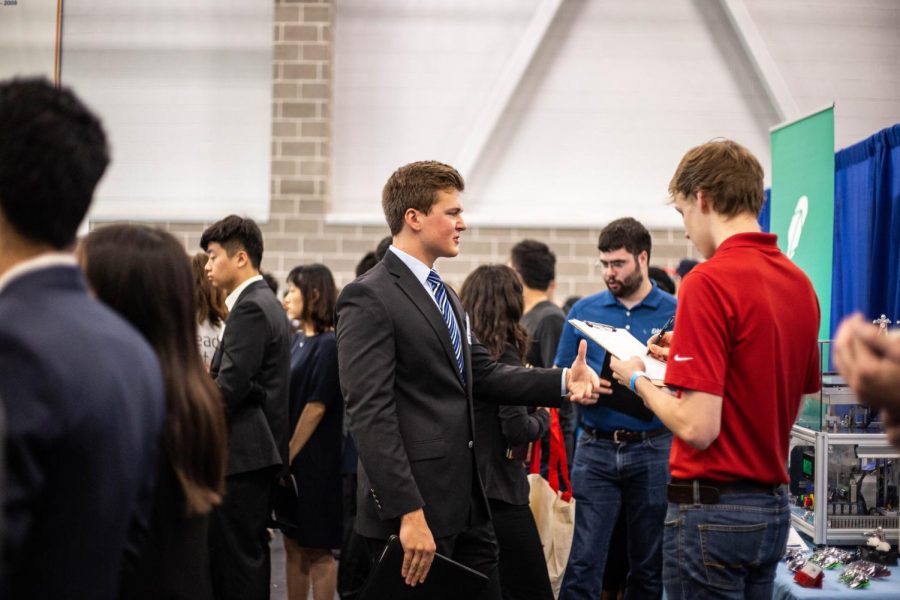Prepare past your resume for career fairs
Engineering students talk to company representatives at the Engineering Career Fair at the Activities and Recreation Center on Sept. 11.
Jan 28, 2019
Engineering students are heavily encouraged to attend the career fair to show off their skills and expertise to potential employers. However, we’re rarely told how to make ourselves stand out. The most common advice goes something along the lines of “Bring at least 10 copies of your resume with you,” or “Don’t include unnecessary information on your resume.”
Fair, but is the resume the be-all end-all? Is there no other way to attract employers? These questions are often left unanswered, and some candidates go into career fairs with the impression that a meaty resume guarantees a job offer. That’s not entirely the case. But do not stress, because this resume-less guide will help you boost your job chances for the upcoming Engineering Career Fair on Wednesday.
Prepare your elevator pitch
An elevator pitch is the most essential tool a job candidate can carry with them to a career fair. The most effective pitches are roughly a minute-long description of yourself that aims to persuade the employer to hire you. As an engineer, it is important you describe one activity in your field of study that really stuck with you and has had a big impact on your professional career. Avoid listing activities with the quantity over quality mindset.
For example, instead of saying, “In high school, I was a part of the solar car team and the engineering society. I was also a part of the student council and helped the school open a new research lab,” be more specific and concentrate on the journey of one of those activities. What did you learn? What skills have you developed? Did you feel this activity influenced your choice of major?
Get The Daily Illini in your inbox!
This should sound something like, “Joining the solar car team in high school was an activity I felt changed my outlook on electrical engineering. Collaboration and leadership were skills I thought I would not learn to nurture in the major, but after competing in numerous solar car races, I know what it takes to lead a project to completion.”
The second example sounds much more natural than the first, and it reflects on the experiences gained in one activity rather than a dull description of numerous activities. Remember to avoid sounding boastful in your pitch, or an employer might think your ego could be detrimental in their workplace. That is another reason why it is best to elaborate on one activity.
Research employers beforehand
A rookie mistake students often make when talking to employers is asking the question “So what is your company all about?” This question is an immediate red flag for recruiters since it showcases a lack of interest in their organization. If you’re going to hold a conversation with a recruiter, ensure you’ve done background research on the company beforehand so that you can ask them thought-provoking questions.
And remember engineers, Rolls-Royce does not manufacture cars anymore, only engines. Do not start your conversation with “I’ve always loved cars” or “I like working with cars.” That’s an automatic discussion killer, and it’s unlikely that Rolls-Royce will contact you after the fair even if your elevator pitch and resume are exceptional. Be sure to prepare by researching your potential employers.
Aayush is a freshman in Engineering.






